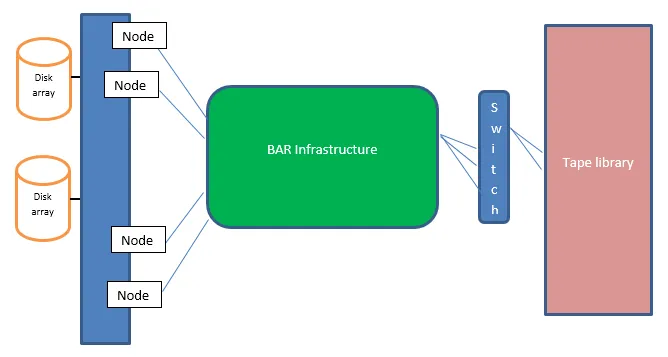
Teradata Cookbook
Abhinav Khandelwal, Rajsekhar Bhamidipati
- 454 Seiten
- English
- ePUB (handyfreundlich)
- Über iOS und Android verfügbar
Teradata Cookbook
Abhinav Khandelwal, Rajsekhar Bhamidipati
Über dieses Buch
Data management and analytics simplified with TeradataAbout This Book• Take your understanding of Teradata to the next level and build efficient data warehousing applications for your organization• Covers recipes on data handling, warehousing, advanced querying and the administrative tasks in Teradata.• Contains practical solutions to tackle common (and not-so-common) problems you might encounter in your day to day activitiesWho This Book Is ForThis book is for Database administrator's and Teradata users who are looking for a practical, one-stop resource to solve all their problems while handling their Teradata solution. If you are looking to learn the basic as well as the advanced tasks involved in Teradata querying or administration, this book will be handy. Some knowledge of relational database concepts will be helpful to get the best out of this book.What You Will Learn• Understand Teradata's competitive advantage over other RDBMSs. • Use SQL to process data stored in Teradata tables. • Leverage Teradata's available application utilities and parallelism to play with large datasets• Apply various performance tuning techniques to optimize the queries.• Acquire deeper knowledge and understanding of the Teradata Architecture.• Easy steps to load, archive, restore data and implement Teradata protection features • Gain confidence in running a wide variety of Data analytics and develop applications for the Teradata environmentIn DetailTeradata is an enterprise software company that develops and sells its eponymous relational database management system (RDBMS), which is considered to be a leading data warehousing solutions and provides data management solutions for analytics. This book will help you get all the practical information you need for the creation and implementation of your data warehousing solution using Teradata.The book begins with recipes on quickly setting up a development environment so you can work with different types of data structuring and manipulation function. You will tackle all problems related to efficient querying, stored procedure searching, and navigation techniques. Additionally, you'll master various administrative tasks such as user and security management, workload management, high availability, performance tuning, and monitoring.This book is designed to take you through the best practices of performing the real daily tasks of a Teradata DBA, and will help you tackle any problem you might encounter in the process.Style and approachThis book is a rich collection of recipes that will come in handy when you are working with Teradata. It addresses your common and not-so-common pain points, and this is a book that you must have on the shelf.
Häufig gestellte Fragen
Information
Advanced SQL with Backup and Restore
- Exploring ordered analytic functions
- Using CASE statements
- Working with correlated subqueries
- Experimenting with JSON
- Partitioning tables column wise
- Archiving DD
- Archiving databases
- Archiving PPI tables
- Restoring a table
- Generating a unique row number
Introduction
- Data definition language (DDL): These like CREATE and DROP
- Data manipulation language (DML): These are like SELECT, INSERT, and DELETE
- Data control language (DCL): These are like GRANT and REVOKE
- Windows aggregate function
- Ordered analytic function
- Extended time and date function
- Advanced ranking function
- Advanced sampling and random function
- Extended grouping function
- Merge into function
- Large binary object
Backup and recovery

Exploring ordered analytic functions
| Functions | Used For |
| RANK | For ranking of the answer set |
| QUANTILES | For quantiles |
| CSUM | For cumulation |
| MAVG | For moving averages |
| MSUM | For moving sums |
| MDIFF | For moving differences |
| MLINREG | For moving regression |
| ROW_NUMBER | Returns the sequential row number of a group starting with the number o... |